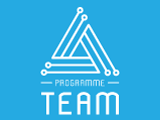IMDEA Networks

TEAM: an academic exchange program between Europe and Asia in ICT
08 January 2015

PhD students, postdocs and personal wishing to apply for a mobility scholarship between Europe and Japan and the Republic of Korea can now apply to the program Technologies for information and communication, Europe – East Asia Mobilities (TEAM) up until 1 February 2015.
This Erasmus Mundus Action 2 program funded by the European Commission, focusing on Information Technology and Communication (ICT), aims to stimulate discussion among six European* and six Asian** world-class institutions.
The purpose of TEAM is to create a community of excellence in ICT, bringing together doctoral and post-doctoral students as well as academic and administrative staff from twelve institutions. It will fund 110 mobility scholarships ranging from one to twelve months, of which 72 are destined for Europeans. The beneficiaries of this program will have their plane tickets paid and will receive a monthly allowance for the duration of their stay.
This partnership composed of the higher education institutions, research institutions and industrial partners is designed to guide young talent towards the internationalization of their careers and the acquirement of new skills. TEAM also promotes the exchange of good practices between the leading scientists of the partnership as well as the establishment of joint programs, in both research and education.
* The six European partner universities: Pierre Marie Curie University (France), Aalto University (Finland), Technische Universität Berlin (Germany), University of Trento (Italy), Eötvös Loránd University (Hungary), Carlos III University of Madrid (Spain ) . IMDEA Networks Institute is an Associated Partner in this project.
** The six Asian partner universities: Chungnam National University (Republic of Korea), Gwangju Institute of Science & Technology (Republic of Korea), Korea Advanced Institute of Science and Technology (Republic of Korea), Keio University (Japan), Nara Institute of Science and Technology (Japan), Tokyo University (Japan).


Recent Comments